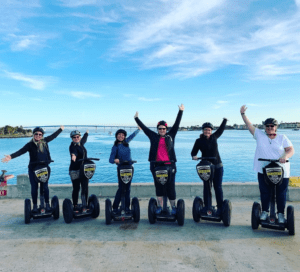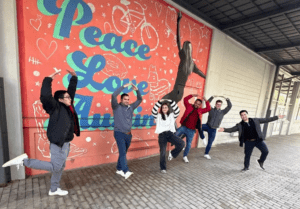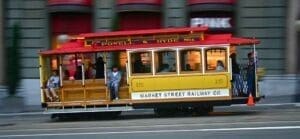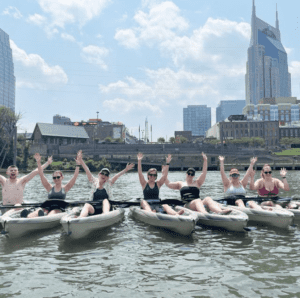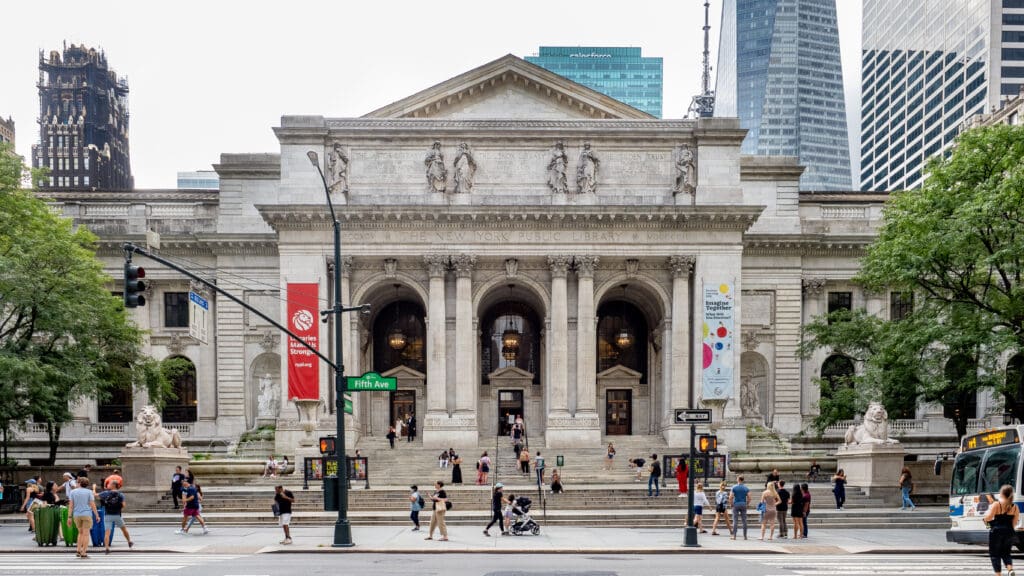The time has come for you to begin planning a Scavenger Hunt. But where do you begin? When you are planning how to make a city scavenger hunt for your team you must consider 7 Key step:
- Time length of the hunt
- Distance of the hunt
- City in which you will hunt in
- Neighborhood you will hunt in
- Time of your hunt
- Design your hunt
- Proper follow up
The most important decision you can make is deciding if you have the resources to complete all of these steps thoroughly. If not you might want to call in a professional. If you do, then you are going to be able to create one slammin’ event that you team is sure to remember for years to come!
1. Select a length of time for the Scavenger Hunt
One of the first decisions you’ll need to make is determining the duration of your scavenger hunt. The length of time should be based on several key factors:
- How much time can you allocate to the activity?
Consider the overall schedule of your event. If this is just one activity among many, a shorter hunt might be more appropriate. However, if the scavenger hunt is the main event, you can afford to dedicate more time to it. - How long can you hold your group’s attention span?
While some groups might thrive on a longer hunt filled with complex challenges, others might start to lose interest if the hunt drags on. A general rule of thumb is to plan for at least a two-hour hunt. This duration is long enough to engage participants but short enough to maintain their enthusiasm.
Example:
For a corporate team-building event, a 3-hour scavenger hunt allows teams to dive deep into the experience without feeling rushed, while a family outing might be better suited to a shorter, 1-2 hour hunt that keeps kids engaged without tiring them out.
2. Select the Distance for the Scavenger Hunt
The distance your scavenger hunt covers is crucial to its success. You’ll need to strike a balance between making the hunt challenging and ensuring it’s feasible for all participants.
- Can your team physically handle the distance?
Consider the fitness levels and mobility of your group. A hunt that requires a lot of walking might be perfect for a group of young professionals, but it could be too demanding for a more diverse group with varying fitness levels. - Can the ground be covered within the time frame?
Make sure that the distance aligns with the duration of your hunt. Include time for participants to stop, search for clues, and complete challenges. - Start and end location:
Ensure the start and end points are easily accessible. They could be the same location, like a central park, or different spots within the city, such as a notable landmark and a popular café.
Example:
In a dense urban area like New York City’s Lower East Side, a one-mile radius might be ideal, allowing participants to explore historic sites, street art, and hidden gems without walking too far. In a sprawling city like Los Angeles, you might need to limit the area or provide transportation between distant locations.
3. Pick a City
The city you choose will set the tone for the entire scavenger hunt. Here are some factors to consider when selecting the location:
- Proximity:
If your group is based in a particular city, it makes sense to hold the hunt there. However, if you’re open to travel, consider cities that offer a unique or vibrant atmosphere that fits the theme of your event. - Budget:
Consider whether your budget allows for travel. Some cities may require more logistical planning and costs, like accommodation and transportation, especially if participants are coming from out of town. - Local knowledge:
Ensure you have enough knowledge about the city to create effective clues. Alternatively, you could collaborate with local experts or guides to enhance the experience.
Example:
Hosting a scavenger hunt in Washington, D.C., offers a rich blend of history, culture, and iconic landmarks, making it ideal for a group interested in politics or American history. On the other hand, a hunt in Austin, Texas, might focus on its vibrant music scene, food trucks, and quirky street art.
4. Picking a Neighborhood
The neighborhood you select will be the hunting grounds, so it’s essential to choose an area that enhances the experience. Here’s what to consider:
- Safety:
Ensure the area is safe for all participants, especially if the hunt will take place during the evening. - Variety of establishments:
The best neighborhoods for scavenger hunts are those with a variety of establishments close together. This could include restaurants, shops, bars, historic sites, and unique local spots. - Local flavor:
Choose a neighborhood that embodies the spirit of the city. Whether it’s a historic district, a trendy shopping area, or a cultural hub, the neighborhood should offer a mix of experiences that reflect the city’s character.
Example:
In San Francisco, the Mission District offers a blend of murals, historic sites, and trendy eateries, making it a dynamic area for a scavenger hunt. In contrast, Chicago’s River North neighborhood provides a mix of art galleries, architecture, and vibrant nightlife.
5. Select a time
Timing can significantly impact the success of your scavenger hunt. Consider the following:
- Participant preferences:
Schedule the hunt at a time that suits the majority of participants. Avoid very early mornings or late evenings unless you know your group is up for it. - Weather conditions:
If you’re in a location where the weather can be extreme, plan accordingly. For example, in hot climates, an early morning or late afternoon start might be best, while in cooler areas, midday might be ideal. - Operation hours:
Check the opening and closing times of the locations you plan to include in your hunt. This is especially important if your hunt involves visiting specific landmarks, stores, or attractions.
Example:
A scavenger hunt in Phoenix, Arizona, might be best scheduled for early morning to avoid the midday heat, while a hunt in Seattle, Washington, could take advantage of a cool, late afternoon to explore the city’s bustling markets and coffee shops.
6. Design Your Hunt
Designing your scavenger hunt is where your creativity shines. Tailor the challenges to the interests and abilities of your participants:
- Puzzle lovers vs. straightforward thinkers:
Some groups might enjoy complex puzzles and riddles, while others may prefer direct challenges. Balance the types of tasks to cater to different preferences. - Interests:
Incorporate elements that align with your group’s interests, such as history, pop culture, or local trivia. If your team loves history, include stops at historical landmarks with questions about the site’s past. - Personality types:
Consider whether your group is outgoing or more introverted. Outgoing groups might enjoy challenges that involve interacting with strangers, while introverts might prefer tasks that can be completed within the team. - Skill-building opportunities:
If this is a corporate event, you might want to incorporate challenges that emphasize teamwork, communication, and problem-solving.
Example:
For a team of tech enthusiasts in Silicon Valley, you could create a hunt that involves solving coding puzzles or finding landmarks related to the history of the tech industry.
7. Proper Follow Up
After the hunt, it’s important to bring everyone together to reflect on the experience. This can deepen the impact of the activity, especially for corporate groups.
- Decompression session:
Allow participants to share their experiences, challenges they faced, and highlights of the hunt. This helps to solidify the bonding and learning that occurred during the event. - Facilitated discussion:
Guide the group in a discussion about what they learned. Ask questions like:- What did you discover about your personal strengths and weaknesses?
- How did your team overcome challenges?
- What skills can be applied to the workplace or daily life?
Example:
In a corporate setting, use this session to identify areas where the team excelled in communication and collaboration, and discuss how these skills can be transferred back to the office. For a group of friends or family, it can be a fun way to relive the adventure and celebrate the day’s achievements.
Done-For-You Hunts
If planning a scavenger hunt from scratch seems daunting or time-consuming, consider opting for a done-for-you hunt. Companies like cityHUNT specialize in organizing customized scavenger hunts tailored to your group’s needs and preferences. They handle all the details, from designing clues to setting up the event, so you can focus on enjoying the experience with your group.
Happy Hunting! Remember, a well-planned scavenger hunt is not just about the destination, but about the journey, the challenges, and the fun along the way. Whether you choose to create your own or go with a professional service like cityHUNT, you’re sure to create memories that will last a lifetime.
This blog is brought to you by Samantha Krause and cityHUNT

